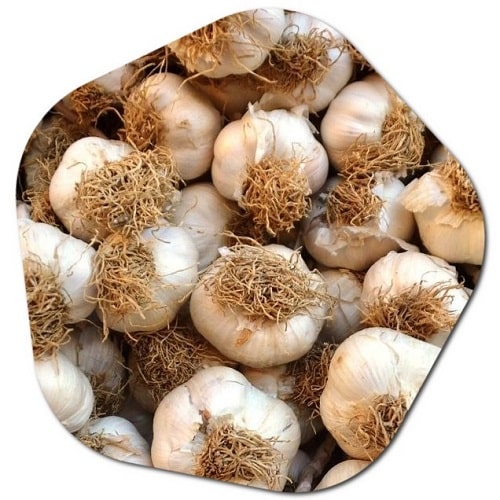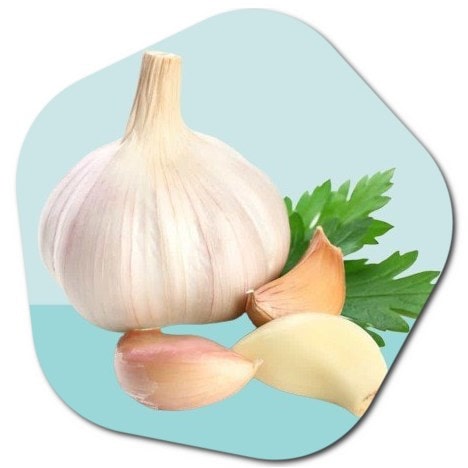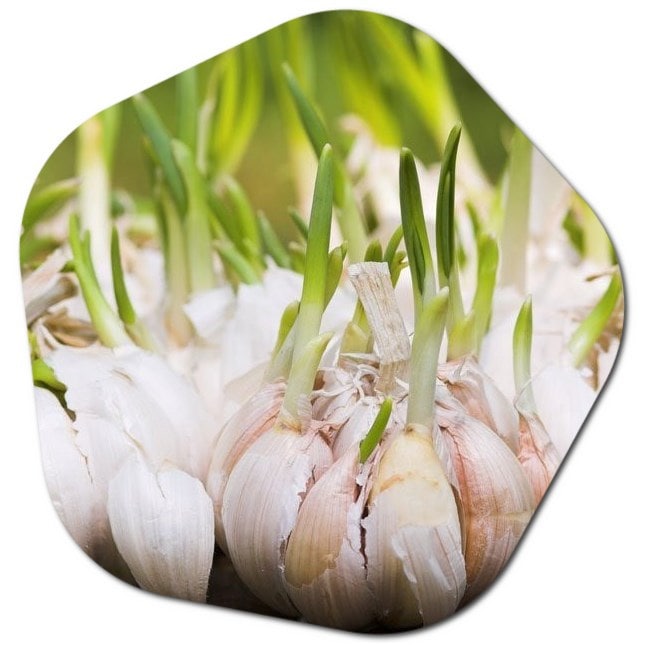What happens if I eat garlic everyday?
How many grains of garlic should be eaten per day? Since garlic has high components, care should be taken in its consumption. From this point of view, it is recommended to swallow 1 or 2 cloves of garlic per day. Should garlic be swallowed in the evening or in the morning? Garlic can be used raw or cooked. Garlic, which is generally used in cooked dishes, is known to have many benefits when swallowed raw in the morning. In particular, swallowing raw on an empty stomach in the morning provides an effect on the emergence of antibiotic properties.
What happens in the body if you eat garlic on an empty stomach every day? It strengthens the body’s defence mechanism and regulates metabolism. – Provides protection against many cancers such as stomach, prostate, breast. – Provides benefit in preventing tumour formation. – Garlic has antimicrobial properties due to its vitamins A, C and B group vitamins, various enzymes and many minerals.
Garlic has been recognized as a natural antibiotic since ancient times. With its positive effects on human health, garlic, which is frequently preferred to be used both raw and in meals, is also very rich in flavor. There is evidence that garlic was cultivated even 7000 thousand years ago.
Eating garlic every day can have both positive and potentially negative effects on your health, depending on the quantity consumed and individual factors. Here are some of the potential effects of eating garlic daily:
Positive Effects:
- Cardiovascular Health: Garlic is often associated with cardiovascular benefits. It may help lower blood pressure, reduce cholesterol levels, and improve overall heart health. Some studies suggest that regular garlic consumption can lower the risk of heart disease.
- Antioxidant Properties: Garlic contains antioxidants that can help protect your cells from damage caused by free radicals. This may have a positive impact on overall health and aging.
- Immune System Support: Garlic has immune-boosting properties and may help the body fight off infections and illnesses. It’s often recommended during cold and flu seasons.
- Anti-Inflammatory: Garlic has anti-inflammatory properties, which can be beneficial for conditions where inflammation plays a role, such as arthritis.
- Antibacterial and Antifungal: Garlic has natural antibacterial and antifungal properties, which can help combat infections.
Potential Negative Effects:
- Digestive Issues: Some people may experience digestive discomfort, including heartburn or upset stomach, when consuming garlic in excess.
- Bad Breath and Body Odor: Garlic is known for causing strong breath and body odor. This can be socially undesirable but is generally not harmful.
- Allergic Reactions: In rare cases, people may have an allergy or sensitivity to garlic, leading to allergic reactions.
- Interactions with Medications: Garlic supplements or excessive garlic consumption may interact with certain medications, such as blood thinners, so it’s important to consult with a healthcare professional if you are taking medication regularly.
- Skin Irritation: Handling fresh garlic can sometimes cause skin irritation or allergic reactions in sensitive individuals.

It’s important to consume garlic in moderation as part of a balanced diet. Most health benefits can be obtained from incorporating moderate amounts of fresh or cooked garlic into your meals. If you are considering taking garlic supplements, it’s advisable to consult with a healthcare provider to ensure they are appropriate for your specific health needs and to avoid potential interactions with medications.
Remember that individual responses to garlic can vary, so pay attention to how your body reacts when incorporating it into your daily diet. If you have specific health concerns or conditions, it’s a good idea to discuss your dietary choices with a healthcare professional.
What are the 10 health benefits of garlic?
Garlic is a versatile herb that has been used for its potential health benefits for centuries. While it’s not a miracle cure, garlic does offer several health advantages when consumed as part of a balanced diet. Here are ten potential health benefits of garlic:
- Cardiovascular Health: Garlic is associated with improved cardiovascular health. It can help lower blood pressure, reduce cholesterol levels (particularly LDL cholesterol), and support overall heart health. Regular consumption may lower the risk of heart disease.
- Antioxidant Properties: Garlic contains antioxidants, such as allicin, which help combat oxidative stress and protect cells from damage caused by free radicals. This may contribute to a reduced risk of chronic diseases.
- Anti-Inflammatory: Garlic has anti-inflammatory properties that may benefit individuals with conditions influenced by inflammation, such as arthritis.
- Immune System Support: Garlic has immune-boosting properties and may help the body defend against infections and illnesses. It’s often recommended as a natural remedy during cold and flu seasons.
- Antibacterial and Antifungal: Garlic has natural antibacterial and antifungal properties. It can help combat various bacterial and fungal infections.
- Cancer Prevention: Some studies suggest that garlic consumption may be linked to a reduced risk of certain cancers, particularly stomach and colorectal cancers. The antioxidants in garlic may play a role in this protective effect.
- Improved Digestion: Garlic may support digestive health by promoting the growth of beneficial gut bacteria and aiding in digestion.
- Detoxification: Garlic may help the body detoxify by supporting the liver’s natural detoxification processes.
- Blood Sugar Control: Garlic may have a modest effect on blood sugar levels, making it potentially useful for individuals with diabetes or those at risk of developing diabetes.
- Respiratory Health: Garlic has been used traditionally to alleviate respiratory conditions like coughs and colds. Its antibacterial properties can help fight respiratory infections.

It’s worth noting that while garlic has these potential benefits, individual responses to garlic can vary. Some people may experience digestive discomfort or garlic breath, especially when consuming large amounts. Garlic supplements are available, but it’s generally recommended to incorporate fresh or cooked garlic into your diet for the most balanced and natural consumption.
As with any dietary changes or supplements, it’s advisable to consult with a healthcare professional, especially if you have specific health concerns or are taking medications, to ensure that garlic is appropriate for your individual health needs.
What are the secret benefits of garlic?
While many of garlic’s potential health benefits are well-documented, some lesser-known or “secret” benefits of garlic have been explored in research or traditional use. These benefits may not be as widely recognized but are still worth mentioning:
Mosquito Repellent: Garlic emits a pungent odor due to its sulfur compounds, and this odor can deter mosquitoes. Some people believe that consuming garlic or rubbing garlic oil on the skin may help reduce mosquito bites.
Aphrodisiac: Garlic has been considered an aphrodisiac in various cultures throughout history. While scientific evidence for its aphrodisiac properties is limited, garlic’s potential to improve cardiovascular health may indirectly support sexual health by enhancing blood flow.
Hair Loss Prevention: Garlic’s sulfur-containing compounds may help improve scalp health and potentially reduce hair loss. Some homemade hair masks and remedies include garlic for its potential benefits.
Wart Removal: Some people use garlic to treat common warts. Crushed garlic is applied directly to the wart, and it’s believed that the garlic’s natural compounds can help break down the wart tissue.
Natural Pesticide: In gardening, garlic is sometimes used as a natural pesticide. A garlic spray can be applied to plants to repel pests and protect them from insect damage.
Skin Health: Garlic’s antibacterial and antifungal properties may make it useful for addressing minor skin issues, such as acne or fungal infections. However, it should be used cautiously on the skin, as it can cause irritation in some individuals.
Fish Bait: Garlic’s strong odor is believed to attract fish, making it a popular ingredient in homemade fish baits for anglers.
Preservative: Historically, garlic was used as a food preservative due to its natural antimicrobial properties. It was added to foods to help extend their shelf life.
Natural Flavor Enhancer: Garlic’s rich, savory flavor enhances the taste of various dishes. It is often referred to as the “stinking rose” for its strong but delightful flavor.
While these “secret” benefits of garlic are intriguing, it’s important to note that scientific research on some of these uses may be limited, and individual experiences can vary. Additionally, when using garlic for non-culinary purposes, such as for skin remedies or as a repellent, it’s advisable to do a patch test and exercise caution to avoid skin irritation or adverse reactions. Benefits of garlic >>
Garlic is best known for its culinary and potential health benefits, so its use for other purposes should be approached with care and awareness of its potential effects.
What are 5 health benefits of garlic?
Garlic is renowned for its potential health benefits, and here are five well-established ones:
- Cardiovascular Health: Garlic is associated with improved cardiovascular health. It can help lower blood pressure, reduce levels of LDL cholesterol (the “bad” cholesterol), and improve overall heart health. Regular garlic consumption may lower the risk of heart disease.
- Antioxidant Properties: Garlic contains antioxidants, such as allicin, which help combat oxidative stress and protect cells from damage caused by free radicals. This may contribute to a reduced risk of chronic diseases.
- Immune System Support: Garlic has immune-boosting properties and may help the body defend against infections and illnesses. It’s often recommended as a natural remedy during cold and flu seasons.
- Antibacterial and Antifungal: Garlic has natural antibacterial and antifungal properties. It can help combat various bacterial and fungal infections.
- Cancer Prevention: Some studies suggest that garlic consumption may be linked to a reduced risk of certain cancers, particularly stomach and colorectal cancers. The antioxidants in garlic may play a role in this protective effect.

It’s worth noting that while garlic has these potential benefits, individual responses to garlic can vary. Some people may experience digestive discomfort or garlic breath, especially when consuming large amounts. Garlic supplements are available, but it’s generally recommended to incorporate fresh or cooked garlic into your diet for the most balanced and natural consumption.
As with any dietary changes or supplements, it’s advisable to consult with a healthcare professional, especially if you have specific health concerns or are taking medications, to ensure that garlic is appropriate for your individual health needs.
Is there any harm in garlic?
As with any natural food, there may be undesirable situations in the consumption of garlic. However, the biggest problem here is overconsumption. People may want to consume more garlic because it is healthy, but excessive consumption has negative effects on health, especially on the stomach. When too much garlic is consumed, stomach diseases can be triggered. Gastritis and reflux problems may occur. In addition, burning and pain occurs in the stomach. Garlic benefits >>
Benefits of Raw Garlic
Garlic can be consumed both raw and fresh. Therefore, people wonder about the benefits of consuming fresh and cooked garlic. In fact, consumption of garlic in both ways is beneficial for health. However, the benefits for those who want to consume garlic by swallowing it raw are as follows:
Raw garlic is good for indigestion. Swallowing 1 raw garlic before bedtime can prevent constipation.
It increases the body’s resistance and is effective in making the person feel more energetic. Helps diuretic. Provides protection against colds such as flu and colds.





